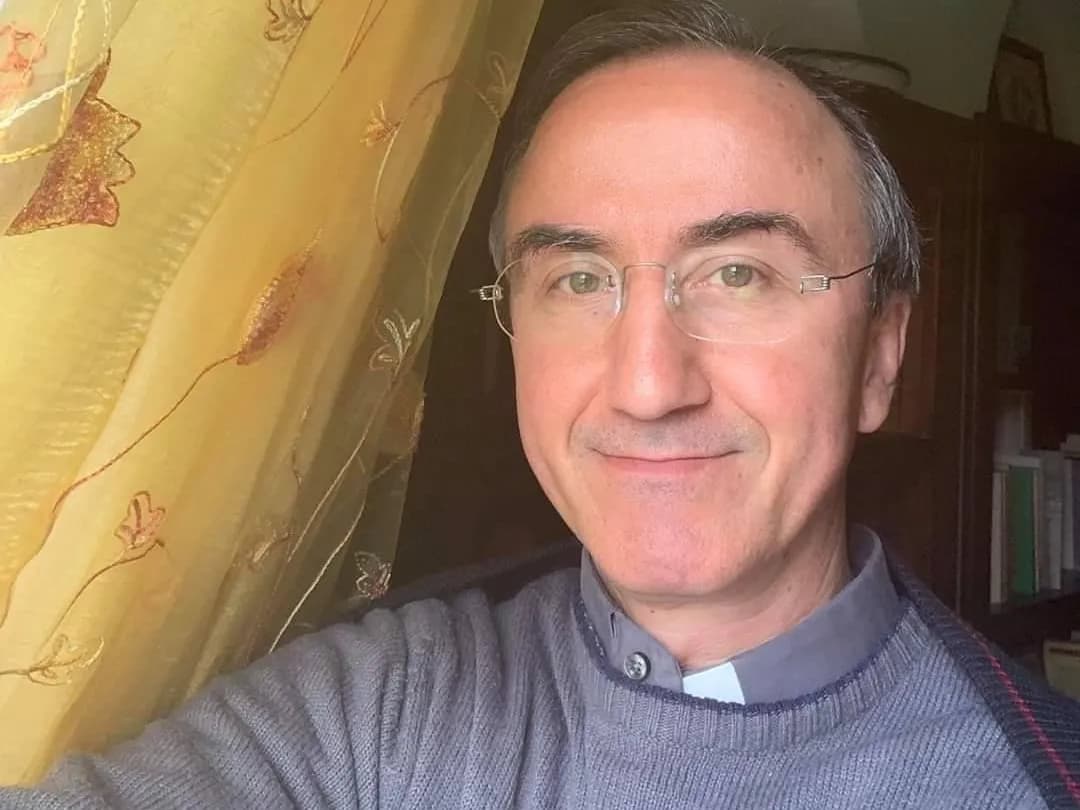ROME – An Italian priest who first achieved national fame for his skeptical stance on Covid-19 vaccinations, and who later became a cause célèbre after revealing on Facebook that he was leaving the priesthood to be with a woman with whom he said he’d fallen in love, is now running for mayor of his small Italian village.
Antonio Romano, who left the priesthood earlier this year after 32 years of service and who announced his candidacy a month later, is running for the mayor’s job in June 8-9 elections in Chiusano San Domenico, a community in the southern Italian region of Campania with a population estimated at just over 2,000 people.
Romano made national waves in 2020 and 2021, at the peak of Italy’s Covid-19 crisis, when he insisted that the decision of whether or not to be vaccinated should be free, suggesting that requiring proof of vaccination to enter workplaces or to travel amounted to constraint.
When he tested positive himself for the Coronavirus in December 2021, Romano claimed that he had been able to detect its symptoms because he had refused vaccination, and also said he believed he’s been infected by a vaccinated person who regarded him or herself as immune and therefore behaved recklessly.
Those views were enough to make Romano briefly a star of the largely conservative Italian Catholic “no vax” movement.
Now 57, Romano returned to national prominent in late January when he made a surprise announcement on his Facebook page regarding his decision to leave the priesthood, having spent the last 22 years as pastor of the small parish of St. Mary of the Angels in Chiusano San Domenico.
“After a long friendship, I’ve discovered that I’m in love with a woman,” he said. “I share feelings, aspirations, projects, values, faith, principles and ideals with her. We can’t do without each other, despite all efforts to suppress these feelings and efforts at separation, and I can’t fight my nature any longer.”
“This interior conflict lately has also eroded the enthusiasm and fruitfulness of my ministry, even rendering it heavy and oppressive,” he wrote.
Romano went on to say that he’d asked to be relieved of his priestly duties by his local bishop, and that he would continue as a layman to support a non-profit foundation he launched to support children in Burundi. Romano has said that right now he’s suspended from celebrating the sacraments, awaiting formal laicization by church authorities.
He went to say that although he’d never hidden his reservations about mandatory celibacy for priests, he nonetheless respects the rule “and I don’t expect it to change for me.”
Romano also addressed rumors in his small town that the woman with whom he was involved was married to someone else.
“To avoid inferences and slander, let it be known that this woman came out of a troubled cohabitation that cannot be defined as a marriage,” he wrote. “I am absolutely certain that all there are all the conditions for the ecclesiastical tribunal to declare its obvious nullity, and this reestablish justice.”
The post quickly went viral and divided opinion in Italy, with some applauding Romano for being open rather than trying to live a double life, while others criticized him for failing to uphold his priestly vows.
In mid-February, Romano took to social media anew, this time to announce his candidacy for mayor of Chiusano San Domenico, defining himself politically as “a voice outside the chorus of political correctness and thought control, who feels partly progressive but also partly like a conservative.”
Romano added that he sees himself as a “support of sovereignty, but not a nationalist; a liberal, but not a libertarian; and a citizen of the world, but not a globalist.”
“I’m not buying votes,” Romano proclaimed in another post. “I know very well this is an uneven fight. I make no demands, and I have no expectations of winning. I have neither power nor money, and no influential friends, relatives or clients.”
Romano is running as part of a movement he’s calling “Liberation for Chiusano,” challenging incumbent mayor Carmine De Angelis, who’s a member of the conservative Forza Italia party which is part of Italy’s governing coalition.
Ironically, De Angelis had come to Romano’s defense in January when he announced he was leaving the priesthood.
“A man of heart can wear different clothes, and find himself in many situations,” De Angeli wrote in his own social media post. “Choices are always difficult, and, for what it’s worth, I’m close to you.”
Though Chiusano San Domenico is too small to have its own pre-election polls, most observers rate Romano’s candidacy as a long-shot. Among other things, he list of candidates for municipal positions he presented only had seven names, the minimum required out of a maximum of ten, and four weren’t even town residents.
“Unfortunately, even though many locals may support our initiative, they didn’t want to come out publicly,” Romano told media.












